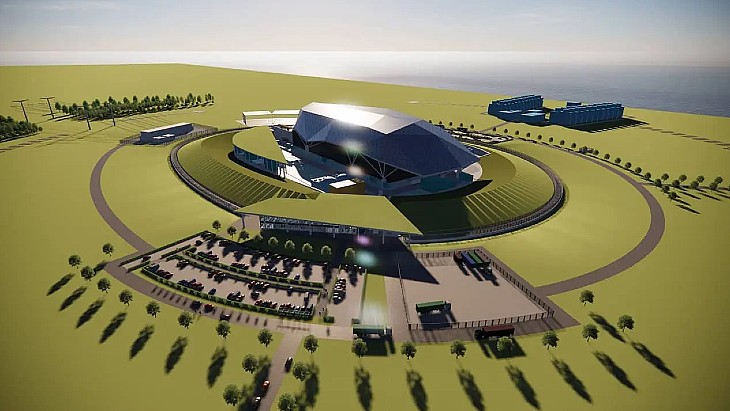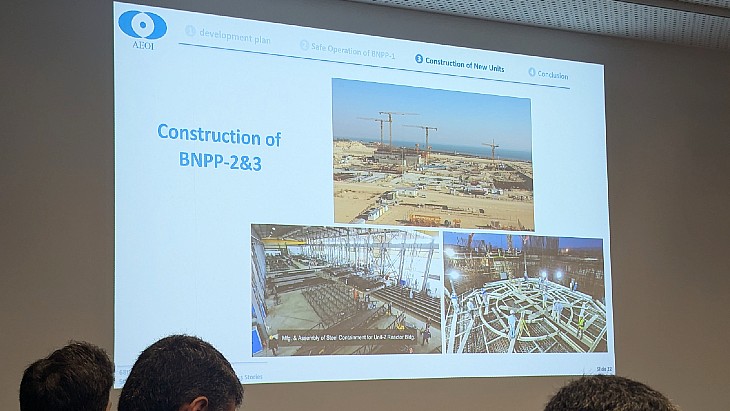First tests under way at new US liquid metal facility
.jpg)
THETA is a 450 litre pool-type sodium vessel installed inside ANL's Mechanisms Engineering Test Loop (METL) facility and consists of a primary system, submerged in a liquid sodium pool, and a secondary system, located outside of the pool, that contains all the major components of a sodium-cooled fast reactor. The primary system consists of a pump, electrically heated core, intermediate heat exchanger and connected piping and thermal barriers, while the secondary system consists of a pump, sodium-to-air heat exchanger and connected piping and valves. Fibre-optic temperature sensors provide thousands of temperature measurement points across a specific flow field, allowing tests to be performed in real-time with immediate feedback.
As well as helping researchers gain insight on how coolant flows through the reactor under all operating conditions, THETA modelling will ultimately identify parameters that could enhance fundamental knowledge for more predictable safety margins, define higher operating temperatures, and provide more efficient power operation to support a wide range of advanced reactor designs, according to the US Department of Energy (DOE) Office of Nuclear Energy.
Oklo - developer of the 1.5 MWe Aurora fast neutron reactor - is using THETA via a voucher through the DOE's cost-shared Gateway for Accelerated Innovation in Nuclear initiative. The tests will will simulate various conditions, including unprotected loss of flow in a liquid-metal fast reactor, providing data to validate systems-level and high-fidelity analysis tools related to flow rate and natural circulation. Reducing uncertainties associated with fluid flow behaviour will improve economic competitiveness of advanced reactor designs and support licensing activities. Testing is expected to be complete by the end of 2022, according to the DOE.
"THETA represents a unique opportunity where experimental and computational researchers can collaborate closely on requirements and design of experiments with a strong focus on the industry needs for advanced reactor licensing,” said Lander Ibarra, ANL principal nuclear engineer.
_92619.jpg)

_84504.jpg)







_88592.jpg)

